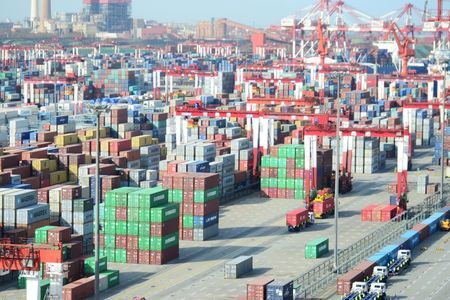
By Reuters
Major Chinese ports have started clearing goods from the United States on Monday, as new tariffs on U.S. imports have gone into effect, three sources told Reuters, as a trade spat between Beijing and Washington escalated into an outright war last Friday.
Customs officers had delayed the clearance of some U.S. goods on Beijing’s penalty list last Friday, as they waited for official instructions from the central government on whether to start collecting the new import tariffs.
Local customs at the port of Qingdao have let through American products they held up on Friday, and imposed higher tariffs on the goods, according to a trader briefed by a customs official at the port.
Shanghai customs has also started collecting new tariffs as of Monday on imported fruits and wine, among other U.S. products on the new tariff lists, two custom brokers told Reuters.
China’s General Customs Administration did not reply to a fax seeking comments.
Beijing had said that China’s punitive tariffs on U.S. products would immediately take effect after America imposed penalties on Chinese goods worth a similar amount.
However, the absence of an official confirmation earlier Friday afternoon had caused confusion in the markets, leaving customs at major ports in limbo.
Later that day, China’s foreign ministry spokesperson announced that China has begun implementing new tariffs of 25 percent on some U.S. goods including automobiles and soybeans.
Customs at the port of Dalian, where the ship Peak Pegasus was currently anchored carrying 70,000 tonnes of U.S. soybeans, have updated their tariffs for the U.S. goods on Beijing’s list to the higher levels, according to a soymeal buyer briefed by a customs official at the port.
The Peak Pegasus caused a stir on Chinese social media as it raced to reach China before the tariffs started on Friday and remained berthed at Dalian and fully laden as of Monday afternoon, according to Eikon data.
It is unclear whether the soybean cargo, which did not arrive until after the penalties took effect, will pay the 25 percent higher tariff.